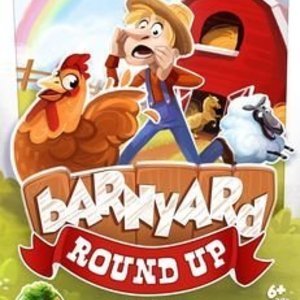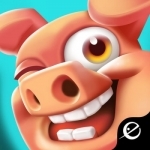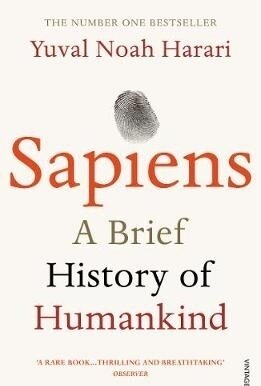Purple Phoenix Games (2266 KP) rated Barnyard Roundup in Tabletop Games
Apr 12, 2021
Barnyard Roundup is a silly game of bluffing and hand management set on a farm. In it players are farmhands trying to help Farmer Brown sell the most animals at market. They do this by bluffing their hands in trade deals with other farmhands, thus making no friends in the process. The player with the most points at the end of the game, when all cards from the draw deck have been drawn, will be the winner!
DISCLAIMER: We were provided a copy of this game for the purposes of this review. This is a retail copy of the game, so what you see in these photos is exactly what would be received in your box. I do not intend to cover every single rule included in the rulebook, but will describe the overall game flow and major rule set so that our readers may get a sense of how the game plays. For more in depth rules, you may purchase a copy online or from your FLGS. -T
To setup place the five Animal Bonus cards in a line with the Set Bonus cards nearby. Shuffle the large deck of animal cards and deal out cards according to the rulebook per the number of players in the game. The Burglar and Excuse Me tokens are sorted and dealt out with the remainders face-down near the other cards. Remove eight cards from the draw deck and decide who will be the start player. The game may now begin!
Barnyard Roundup turns are quite simple: take two or three actions and end the turn. The first action is mandatory and it is Passing Cards to another player. Choose anywhere from one to six cards, place them face-down on the table in front of the player with whom to be traded, and announce the number and type of cards to be traded. For example, a player may say, “This is four chickens.” The targeted player now must decide whether that group actually IS a group of four chickens or if they believe the trader (not traitor) is bluffing. If so the targeted player may say, “That is NOT four chickens.” Once the agree/disagree statement has been made the cards are flipped over to see which player will be adding the cards to their pens. If the targeted player guessed correctly then they will received all the animal cards that were passed to them. That is, unless the cards were actually CROWS. Crows are worth -5 VP at the end of the game (see the photo below) and will be taken into the pen of the defeated player in the trade. In addition to crows (bad) the game includes Copy Cats (good) which can be wild cards to be placed with other animals and they copy the animal in their group. When the trade is resolved the active player may choose to perform the next step, but it is not mandatory.
Players must note that any time a player gains crows that would extend their collection of crows to any multiple of 3 that player must then draw another Action Token (Burglar, Excuse Me, Scarecrow) from the supply. If a Scarecrow is drawn it is immediately revealed and three crows are discarded from that player’s collection. The Excuse Me token may be used during a trade, but before cards are revealed, by a player not involved in the trade. When they announce, “Excuse Me,” they immediately take the place of the targeted player and will decide whether the trade is correct as announced or is a bluff.
Should they wish, the active player may now Play a Burglar Token from their collection in order to target another player and ask for all of their animals of a specific type – “I wish to procure all of your cows” That player must then immediately hand over all their cows, or else may tell the active player to Go Fish. Okay, that last part isn’t in the rules, but I started doing it and it stuck for me.
The third and final step of a turn is simply to Draw Cards and End Your Turn. Draw cards back up to the hand limit of 5 or 6 and end the turn. Play then passes to the next player.
Play continues in this fashion until the last card has been drawn. The game ends immediately and players tally their points per the rulebook to arrive at an ultimate winner!
Components. This game is a bunch of cards and some tokens in a double-wide+ tuckbox. I love the art, and that makes sense as it is illustrated by Lina Cossette, half of Mr. Cuddington. If you don’t know about Mr. Cuddington, please check out their website. The cards are good quality, as are the tokens. But that box. Now, it LOOKS great, and is a fine size. But a tuckbox? I would have preferred a lidded box, or even one of those with the magnetic fold-out lids. But it’s a tuckbox and the opening flap dented upon its first opening. Oy. I could give a chef’s kiss to everything else though.
Now, there’s a reason why I rated this game a 4 and my wife a 6: she beats me every single time we play and I just cannot find the strategy to take her down. Am I just horrible at bluffing games? Does she just dominate me at ALL games? I’m not sure, but this one certainly highlights the fact that she’s just better than me. I can still hear her haunting and taunting me with, “OH MY GOSH I LOVE THIS GAME! I’M SOOOOO GOOD AT IT!” Meanwhile I am sitting pretty with a whole flock of crows laughing at me like I am the Scarecrow from Wizard of Oz. Perhaps I am truly brainless as well.
That said, the game is enjoyable. I do like to play bluffing games, but I’m the poor soul who would rather play straight than do ANY sort of bluffing at all. Except when I have lulled my prey into trusting my every declaration. Then pull out the big guns and laugh my way to the bank. Well, I tried that several times and no dice. But I do enjoy playing, and I do keep coming back for more torture. And if that isn’t a sign of a good game, then what is?
All in all the game is quick, light on rules, and features wonderful art style. This is the game I will probably use to introduce my children (or new gamers) to bluffing games as the theme is easily digestible and when you get stuck with the negative points you don’t feel super bad about it. It is easy to pronounce that Purple Phoenix Games gives this one a squawkin’-good 10 / 12. If you are looking for a light introductory game to teach bluffing or to hit that sweet-spot, then I recommend you check out Barnyard Roundup from Druid City Games. I ain’t a-bluffin’ ya.

Furniture Addons for Minecraft PE Pocket Edition .
Entertainment and Catalogs
App
1 CLICK TO INSTALL THE BEST FURNITURE TO MINECRAFT PE! NOTE: You need Minecraft PE to play our...
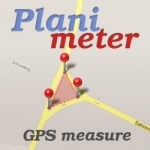
Planimeter - Field Area Measure on Map & GPS Track
Productivity and Utilities
App
Planimeter is a tool to measure land distances and areas on a map, to check bearing and...

Away ~ Meditation & mindfulness to sleep, relax, focus, breathe
Health & Fitness and Lifestyle
App
Those days when your night was shorter than anything you can measure. Those moments when you'd love...
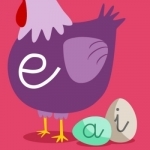
Learn to read and write the vowels in Spanish - Preschool learning games
Education and Games
App
It is so easy to learn the vowels in Spanish with this app. It has lots of fun games. It is very...
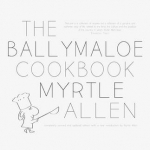
The Ballymaloe Cookbook
Book
First published in 1977, The Ballymaloe Cookbook espouses a food philosophy rare for its time, but...

World of Cubes Survival Craft
Games and Entertainment
App
Create your own worlds with thousands of random players or friends online in Multiplayer mode or...
BookblogbyCari (345 KP) rated Sapiens: A Brief History of Humankind in Books
Aug 5, 2018
The book is an overview of homo-sapiens as a species, and how we have changed over the ages, and what we have done, before finally touching on where we are going. As such the book is a cross-pollination of history, sociology, and economics.
As you may expect from a book with such a broad scope, there are some sweeping statements, and rather than being a neutral dispassionate account, Harari makes his opinions very evident. However rather than being irritating, I feel this makes for a more entertaining read.
The book begins by introducing the theme of homo-sapiens in the context of the presence of the other human species that used to exist. He then goes on to describe the cognitive and agricultural revolutions. Then it’s the establishment of patriarchal social hierarchies across the world, largely based on historical conventions. Next Harari states that the purpose of religion is to unify fragile societies with superhuman legitimacy.
Harari then moves on to the scientific revolution, describing how an admission of ignorance by Europeans, along with a desire to discover and conquer new lands was key to the movement.
The conversation moves swiftly then to economics, using the fact that a bank can loan £10 for every £1 it has, to argue that our economics is based on trust in the future. Harari states that a country’s credit rating is more important than its actual resources. Harari describes capitalism and consumerism as being 2 sides of the same coin with two commandments: rich must invest, rest of us must buy. Consumerism, he says, aims to convince people that indulgence is good and frugality is self-oppression.
Harari also argues that, now, instead of relying on local communities the individual relies on the market or the state. Parental authority no longer sacred, he says, and state intervenes. And so when Harari asks if we are any happier now than when we were hunter-gatherers, he argues that our rise of wealth is offset by the disintegration of community life.
Harari also speaks of ecological degradation and our tendency to treat other species as a means to an end, for example, the farming of cow's and chickens has cut years off the lives of both, since they are killed as soon as they reach their maximum weight.
In the final chapter, Harari speculates on the future of mankind. With improvements in medical knowledge comes new ethical conundrums, he says. How will we handle the options of genetic engineering? What will the advent of artificial intelligence mean for humanity?
In my book club, we found that the book generated a lot of talking points. What would the world be like now, had the other species of humans survived? Why have so many cultures across history and the world had patriarchal hierarchies? Can societies improve over time, or is one style better than another? Can communism be considered a religion? Are human rights really just a figment of our collective imagination?
Whilst not everyone in my book club enjoyed the book equally, I would say that it’s as enlightening as it is thought provoking. By the end, it was hard to argue with the author's conclusion that homo-sapiens are like dissatisfied and irresponsible gods.
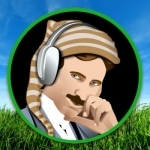
Lullaby | AmbiScience™ Sleep Aid for Children
Medical and Health & Fitness
App
*** The Best Selling Line of Brainwave Apps on the Store - Since 2008. *** "...worthwhile set of...
